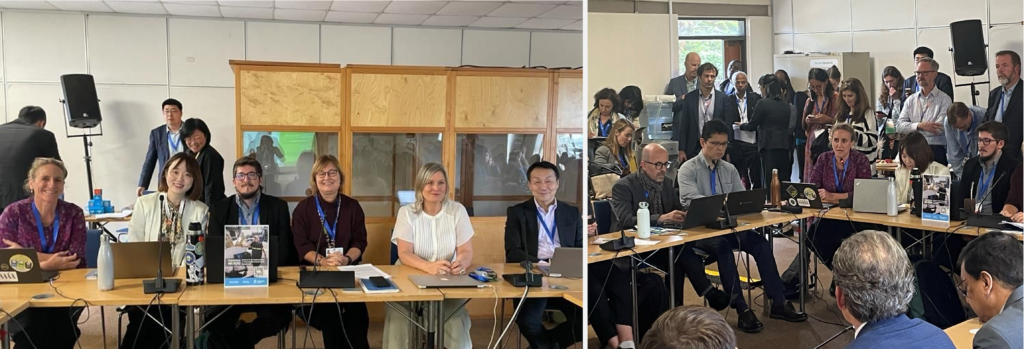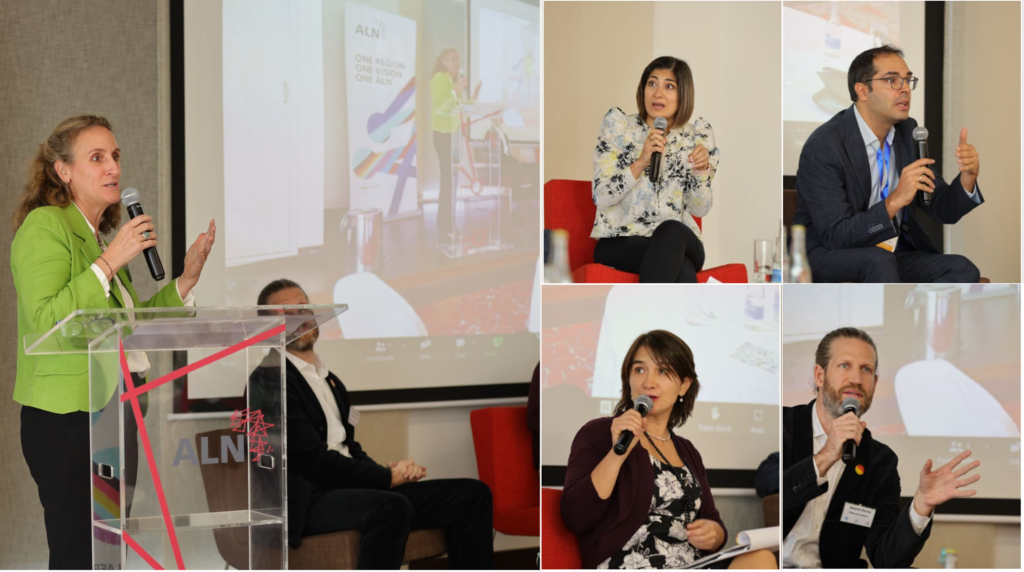The latest session of negotiations to develop a legally binding global plastics treaty ended in Nairobi over the weekend with an uninspiring outcome.
Challenges mount as the treaty text strays from the zero draft
Rather than converging on language from the options laid out in the “zero draft” of the treaty, member states proposed a wide range of alternate text that is now sending the agreement in the opposite direction. It’s gone from a rather tight (for the UN) 31-page document with just one to three options for each topic (product design, waste management, financing, just transition, etc.) to now hundreds of pages with dozens of different options.
While far from ideal, the needed consolidating and sharpening of text can be accomplished in the intersessional work between now and the fourth negotiating session in Ottawa, Canada, in April 2024. But that’s a tall order. Agreement on this intersessional text is critical because, after Ottawa, there is only one session remaining (Seoul, Korea, at the end of 2024) to create this treaty – and if there is no draft text that is being fine-tuned and voted on then it’s hard to imagine how this is going to be a success.
The treaty must address upstream actions to reduce plastic production
Related to these procedural blockages, it is worrying to see several countries trying to remove any attempts to limit plastic production through actions such as better product design, scaling reuse and refill systems and eliminating problematic plastics. As has been said many times before, we cannot recycle our way out of plastic pollution. And we certainly aren’t going to create a circular economy for these materials if plastics made from fossil fuels continue to grow exponentially and are not designed for recyclability.
Several countries were also pushing for national action plans and self-reporting on progress towards targets rather that complying with mandated global guidelines – for example, on extended producer responsibly, chemicals of concern and problematic plastics. Our worry is that this would lead to inaction and non-compliance.
There is still promising action and momentum in several areas
Despite this uninspiring conclusion to INC-3, there was some promising progress made in several areas:
- The overwhelming majority of countries called for an ambitious treaty that does address plastic production and other upstream measures. This is echoed by many of the stakeholders present including businesses, NGOs, Indigenous Peoples, academia and waste pickers
- Most countries recognized the need to ensure a fair and just transition for waste pickers and other marginalized communities
- There was near universal support for a financing mechanism that would support Global South countries with the funding and technical expertise needed to create effective waste management systems. This is something Delterra strongly called for in advance of this session.
It’s now time for countries to roll-up their sleeves and make strong progress towards an ambitious first draft treaty ahead of INC-4 in April.
 This blog was written and contributed by:
This blog was written and contributed by:
Jeremy Douglas
Director of Partnerships
Delterra
Get in touch

Delterra CEO Shannon Bouton speaking to a standing-room-only audience during an official side event at INC-3. She argued that we need innovative financing and grants to support the capacity, infrastructure and operations for Global South counties to end plastic pollution.

Shannon speaking at a pre-event cohosted with partners UNCTAD, ALN Kenya, McKinsey & Company, the SMEP Programme and The FlipFlopi Project. The panel discussed trade and development aspects of plastic pollution mitigation measures, non-plastic substitutes, and plastic alternatives. Read more.
